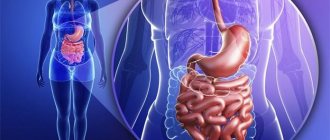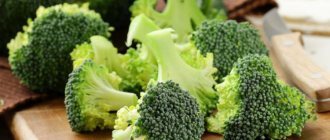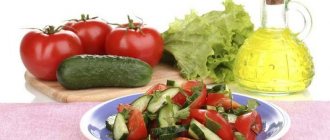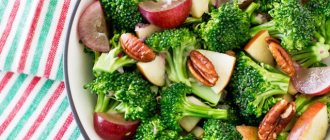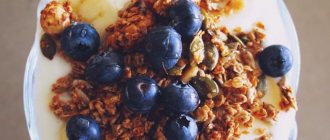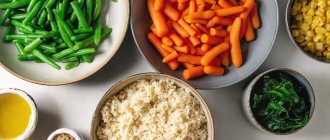However, balancing your diet on a vegan diet can often be a difficult task.
If not planned correctly, a vegan diet can cause nutritional deficiencies and health problems.
This article offers a healthy vegan meal plan and sample menu to get you started.
Vegetarian diet requirements
The basic principles include the fact that a person completely or partially refuses to eat meat, chicken, fish and seafood, eggs, dairy products, getting protein from plant foods, such as legumes and nuts.
Such a diet undoubtedly cleanses the body of waste and toxins, starts the proper functioning of metabolic processes, helping to lose weight and get rid of extra pounds naturally. If the diet is also balanced, it will give a very effective result that will last for a long time. And after a gradual return (if desired) to the regular menu, the lost kilograms will not return again.
What's the benefit
The more correct the food, the more effective and faster the process of losing weight will begin, while natural cleansing will occur, and aging will slow down.
- Eating large amounts of fiber-rich foods every day can reduce the occurrence of cardiovascular diseases and avoid obesity and diabetes. And some doctors confidently claim that the risk of cancer is reduced.
- Life expectancy increases , because avoiding fatty foods preserves the walls of blood vessels and the heart, making them healthy and elastic.
- We get a huge amount of vitamins and folic acid necessary for the body, minerals that are needed for the functioning of all organs, as well as proteins and antioxidants.
Of course, one cannot help but say that vegetarianism also carries negative aspects, namely:
- Proteins are absorbed almost completely, and this happens quite quickly, while only part of the protein is absorbed from plants, and the process proceeds very slowly.
- Some experts are confident that giving up meat leads to a decrease in immunity, an increase in the number of colds, and possible anemia and bone loss.
- It should be remembered that only completely healthy adults can resort to vegetarianism and follow a specially designed diet.
- It is strictly forbidden to give up meat and fish for children, pregnant women, people with serious chronic diseases, and old age makes its own adjustments.
- The lack of milk and dairy products in the diet can lead to disruption of the nervous system, and problems with hematopoiesis may arise.
This is not a complete list of the harms and benefits of vegetarianism. There is another important aspect that is worth paying attention to - a varied and complete vegetarian menu will require significant costs for the family budget.
Undeniable advantages
Vegetarianism as a food system was invented a long time ago, although debate about its pros and cons remains just as vigorous. He has both loyal fans and categorical opponents. So is it a diet with incredible benefits or a “mental illness” as some call it?
We adhere to the first position, because every vegetarian will confirm that adherence to this ideology transforms the body in a short time. We share the advantages of the vegetarian system in the list:
- this is a kind of “cleansing station” for the body, with the help of which you get rid of everything unnecessary;
- normalize cholesterol levels;
- strengthen the body's defenses;
- recharge with energy, become easy-going;
- reduce blood sugar;
- normalize blood pressure;
- keep your weight under control and don’t add extra pounds;
- improve complexion;
- reduce sweating;
- become positive and productive;
- speed up metabolism;
- eliminate hunger, which is typical for many diets;
- reduce the likelihood of cardiovascular diseases, oncology and diabetes;
- increase your life expectancy.
You can discover these and other advantages of vegetarianism, because its benefits are learned in practice. In theory, you can hear about the benefits of this diet from scientists, nutritionists, doctors and, of course, adherents of the system.
Vegetarianism will also be appreciated by anyone losing weight, because they probably know the low calorie content of plant foods and its positive effect on the gastrointestinal tract.
Vegetarian diet for weight loss

If you follow all the rules and recommendations, you can lose 10–12 kilograms in 1–2 weeks. It is very important to follow these rules:
- Calculate the calorie content of foods using special scales that can count grams (kitchen scales) or learn how to calculate the total calorie content of a dish, which is not difficult to do.
- Eliminate fried foods from your diet;
- Use salt very sparingly, if possible replacing it with other natural spices and seasonings, lemon or lime juice;
- Drink up to 2-2.5 liters of clean, cool, still water daily;
- Quit smoking and drinking alcohol completely;
Gradually exit the diet after its completion, gradually including meat dishes in your diet.

Cleansing the body from waste and toxins with juices
Put everything aside, it's time for spring cleaning... more precisely, cleansing the body...
I didn’t like any diet, because almost every one requires you to exclude starchy foods, and I love them very much. Then I came across an ideal nutrition system for myself, in which you need to consume a lot of this product, but only boiled or baked. I’m happy with the result – I lost 4 kg in a week with cabbage and potatoes. I recommend it.
Which products are suitable
Most products are freely available on the shelves of regular stores and supermarkets, and they are not difficult to purchase.
- Cereals Cereals and legumes include all cereals and pasta, cereals and breakfast cereals, and some types of bread made from whole grain flour.
- Vegetables Potatoes and carrots, zucchini (squash and zucchini), all types of cabbage, radishes (and other root vegetables), celery stems and roots, all greens, and especially spinach.
- Fruits All except sweet grapes. Berries and fruits can be eaten not only for breakfast, but also as a snack throughout the day.
- Milk Here everyone decides for himself whether to include it in the diet or not. But all products with a normal percentage of fat content are allowed.
You should also definitely take care and don’t forget to include some honey, vegetable oil, nuts and dried fruits, salt and spices in the menu.
Please note that following a vegetarian diet means taking vitamins every morning after breakfast, preferably a good, complete complex that provides the body with everything it needs.
Dedicated to athletes
The vegetarian system for athletes is becoming increasingly popular. It's no secret that animal protein is needed to gain muscle mass. But vegetarianism offers athletes to replace it with plant-based foods. In addition, this diet goes well with hatha yoga classes for weight loss. Here are the main postulates of this power system:
- A diet supplemented by exercise will give results if you stay in good shape. To do this, ensure you drink plenty of clean water.
- Foods containing carbohydrates should not be completely excluded, because they are essential for maintaining energy. Protein food with slow carbohydrates should be on the menu before training.
- Adding protein shakes to your diet, but without animal protein, will be effective.
Every muscle athlete will be happy with a vegetarian, healthy diet that includes the following foods:
- stewed, raw and boiled vegetables;
- whole wheat bread;
- pasta;
- rice, wheat, buckwheat and millet;
- raw fruits;
- legumes;
- leaf salads;
- greenery;
- flax, hemp and chia seeds;
- nuts and nut oils;
- Agave nectar and hummus.
Physical activity should include a full menu; with the basis of the above products it is easy to provide.
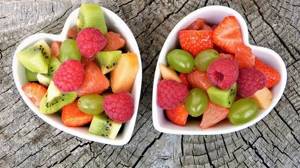
Quitting meat and losing weight
The correct vegetarian menu is already quite balanced in itself; it is enough to please yourself with sweet dishes in the morning, introduce new and varied products and dishes from them into the menu during the day, and stewed vegetables and salads of fresh vegetables in the evening.
If you still feel hungry after dinner, you can drink a glass of milk or kefir, eat a portion of yogurt or cottage cheese, a handful of nuts or dried fruits.
In the first half of the day, a small amount of sweets is allowed. For example, with morning tea you can treat yourself to a small piece of dark chocolate; it will not harm your figure at all. But you shouldn’t get carried away with floury and unhealthy sweets, chips and sodas; it’s better to completely abandon their use in order to take care of your health.
Due to the fact that vegetarian food is light, but at the same time satisfying, the body begins to cleanse itself, the correct metabolic processes are launched, and this is a direct path to natural and simple weight loss.
How to diversify your diet
It is in order to improve their diet that most people switch to vegetarianism. The menu for every day should be healthy and varied and include the required amount of proteins, fats and carbohydrates.
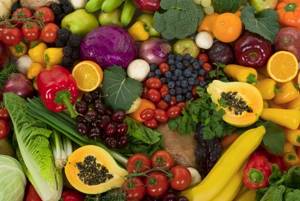
The menu for every day with vegetarianism should be compiled taking into account all the needs of the body and daily energy costs
- Refusing the stereotypical “hot + side dish” scheme, you should prefer independent dishes - stews, casseroles.
- Using a variety of sauces when cooking.
- When cooking, use as many different fruits and vegetables as possible, including exotic ones; Don’t limit yourself to the usual zucchini and potatoes.
Sample vegetarian menu options for the week
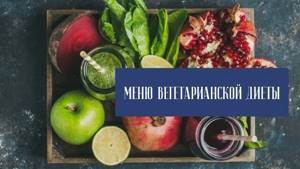
It’s quite simple to create a meat-free menu yourself; it’s enough to develop an approximate list of dishes that would be enough for a week, so that you can alternate them later. However, it is worth remembering that the portion should not exceed 400-450 g. By volume this is approximately one large cup of food.
The first day:
Breakfast – 150 gr. boiled buckwheat porridge (sweet or salty), toast with honey, a cup of green tea. Lunch – a serving of vegetable soup, 1-2 slices of rye bread, a salad of fresh vegetables with vegetable oil and lemon juice. Dinner – 150 gr. boiled rice, stewed vegetables, a glass of fruit drink.
Second day:
3 – 2 sandwiches with cucumbers and tomatoes, fresh herbs, a cup of coffee, fruit salad. O – salad of apples and celery stalks, dressed with unrefined oil, 2 jacket potatoes, dried fruit compote. U – 2 dried toasts, squash or eggplant caviar, a portion of couscous.
Day three:
Z – any porridge with water, pear, tea. O – vegetable soup with tofu, stewed vegetables, orange juice. U – stewed vegetables with mushrooms, pickled red onions.
Day four:
Z – cucumber salad with parsley and butter, jacket potatoes, green tea. O – lentil soup, carrot and cabbage salad, jelly. U – pasta with mushrooms, apple.
Day five:
Z – a portion of oatmeal with honey and berries, coffee with toast. O – borscht without meat, fruit salad. U – vegetable stew, glass of juice.
Day six:
Z – Pancakes or pancakes, tea with honey. O – a portion of vinaigrette, any fruit. U – casserole of potatoes and vegetables, a glass of fruit drink.
Day seven:
Z – any porridge with water, toast with jam, green tea. O – cauliflower and broccoli salad with unrefined oil, boiled cereal, compote. U – Pasta with tomato-garlic sauce, banana.
High Protein Foods
- avocado - 10 g;
- a cup of broccoli - 5 g;
- a cup of spinach - 5 g;
- a cup of green peas - 9 g;
- 28 grams of pistachios - 5.8 g;
- 28 grams of cashews - 4.5 g;
- 28 grams of peanuts or sesame seeds - 6.5 g;
- a cup of beans - 12 g;
- a cup of natural yogurt - 13 g;
- 28 grams of hard cheese - 7.1 g.
In addition, today many different sausages and frankfurters are produced that do not contain natural meat - they are made on the basis of soy protein.
Lacto-vegetarian diet

Unlike the classic vegetarian diet, this menu is supplemented with egg dishes and delicious dairy products. It is perfect for those who find it difficult to eat only plant foods.
Menu with dairy products and eggs
The first day:
Tomorrow - hard-boiled egg, toast with Adyghe cheese, tea with mint. Lunch – buckwheat porridge with a piece of butter, vegetable salad with butter and lemon juice. Dinner – vegetable stew, glass of fruit juice.
Second day:
3 – a portion of cottage cheese with berries and honey, a cup of coffee. O – a portion of stewed potatoes with mushrooms, salad, apple. U – milk porridge, kefir.
Day three:
Z – omelette with tomatoes, tea with honey. O – lean vegetable soup, a portion of vinaigrette. U - cottage cheese casserole with jam, yogurt.
Day four:
Z – yogurt with fruit, a couple of toasts with butter and cheese, coffee. O – pureed vegetable soup with oatmeal, a portion of sauerkraut. U – rice pudding with dried fruits, a glass of juice.
Day five:
Z – fried eggs with a portion of beans in tomato sauce, green tea. O – vegetable risotto, tomato and herb salad. U – peppers stuffed with vegetables and grains, large apple.
Day six:
Z – cheesecakes, soft-boiled egg, tea. O – a portion of stewed vegetables with beet salad, pear. U – vegetable Olivier, a glass of kefir.
Day seven:
Z – pancakes stuffed with mushrooms, coffee with milk. O – borscht or cabbage soup, potato salad. U – stewed vegetables with pickles.
Varieties of vegetarianism

Those who adhere to vegetarianism eat only vegetables and fruits, mushrooms, various cereals and grains, often refusing to include eggs and dairy products in their diet. But there are many principles of vegetarianism - and there are directions in which it is allowed to eat not only milk and even fish and seafood.
Let's take a closer look at these areas
Lacto-vegetarians - adhere to a principle reminiscent of the Indian style of nutrition; in addition to plant foods, the menu includes milk and fermented milk products, sour cream and cheese.
Ovo-vegetarians - this style does not allow the consumption of milk, but you can treat yourself to amber honey and eggs. Thanks to this, the menu becomes varied with pastries and bakery products.
Lacto-ovo vegetarians - adherents of this style are the luckiest, their dishes are more varied thanks to fish and seafood, as well as dairy products and eggs.
Recommendations
If you still feel hungry while eating this menu, you can either slightly increase the portions of food or include one more additional meal in your diet. In this case, the weight loss process will be slower, but more comfortable for you.
To ensure that those extra pounds leave your body faster, you can supplement your lifestyle with exercise. Do morning exercises, yoga, jogging in the fresh air, fitness, swimming - any of these physical activities are great for losing weight. Vegetarian food recipes for each day can vary significantly.
Useful advice from nutritionists
First of all, do not confuse concepts such as vegetarianism and veganism. The latter exclude from the menu all food of animal origin, including eggs, dairy products and even honey made by bees. Vegetarianism is simply a refusal to eat meat.
Nutritionists advise their patients not to overdo the diet to lose weight and cleanse themselves. To lose weight, a 2-3 week course is enough - this is enough for the excess weight to go away and your well-being to improve.
It will be possible to repeat the course after 1.5-2 months, but it is worth considering that returning to normal food with meat dishes should be done carefully, gradually including low-fat varieties of veal or beef, fish and seafood in the diet.
To the delight of meat eaters
Despite all its benefits, vegetarian diets for weight loss also have disadvantages. They are what ardent meat-eaters are guided by when they think about the dangers of “grass-eating”:
- when eating exclusively plant foods, a deficiency in some amino acids may occur;
- vegetable proteins are absorbed longer and only by half, when compared with animal proteins;
- there is a risk of developing anemia, weakening of bone tissue and calcium loss;
- bloating may occur due to coarse fiber;
- there is a lack of vital vitamin B12;
- Deficiency of vitamin D, iodine and calcium often occurs;
- if you refuse fish, you deprive your body of Omega-3;
- Excess plant fiber can interfere with protein absorption.
Who shouldn't
Based on the above disadvantages, a vegan and vegetarian diet has a number of contraindications. A raw food diet is not suitable for:
- during pregnancy;
- nursing mothers;
- people with asthenic syndrome;
- during recovery after surgery;
- teenagers;
- elderly;
- for dizziness and general weakness;
- with prolonged stool disorders;
- people with low hemoglobin levels.
Otherwise, with a responsible approach, the disadvantages of vegetarianism can be easily minimized. If you correctly create a balanced diet, you can easily compensate for the lack of meat products with plant-based ones.
Vegetarianism implies a diet that provides the body with vitamins as much as possible. Agree, not every diet guarantees rapid weight loss with a varied diet and without the feeling of hunger. However, this lifestyle is possible, which is why more and more people are choosing it.
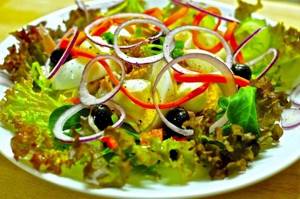
About the results
- In 2-3 weeks you can easily lose up to 10 kg, provided that there is sufficient physical activity during the day and all recommendations are followed.
- The gastrointestinal tract is cleansed, overall well-being improves, blood pressure and sleep quality are normalized.
- Within a week, swelling will subside, complexion will return to normal, and the body’s ability to resist viruses and bacteria will increase.
It is useful to include a diet in your lifestyle 3-4 times a year, that is, before the start of each season. And in the summer, you can completely switch to vegetable and fruit dishes, when the vegetables are young and contain many vitamins.
Be healthy, lose weight deliciously and with pleasure, take care of your health!
If you liked the article and find it useful, share it with your friends on social media. networks.
